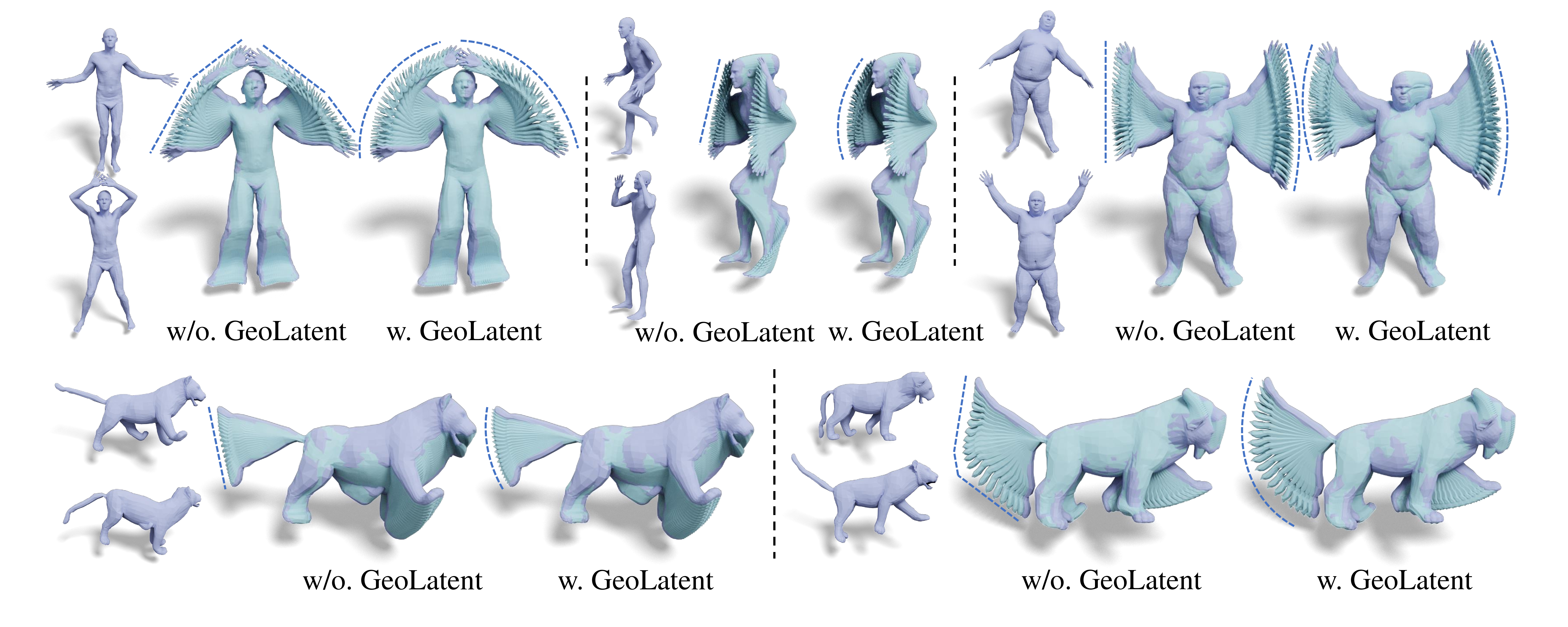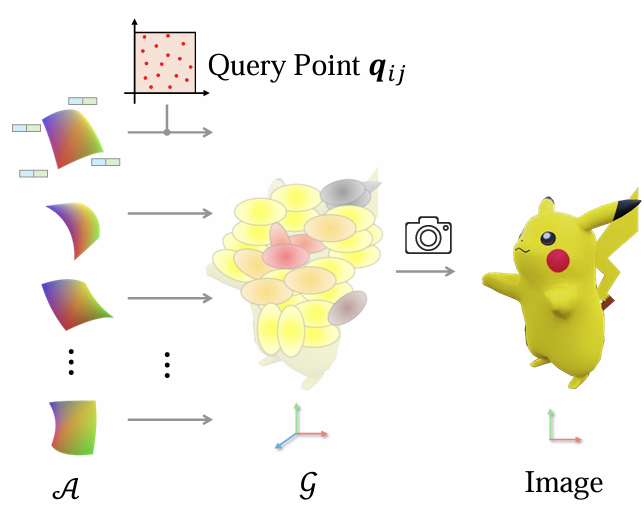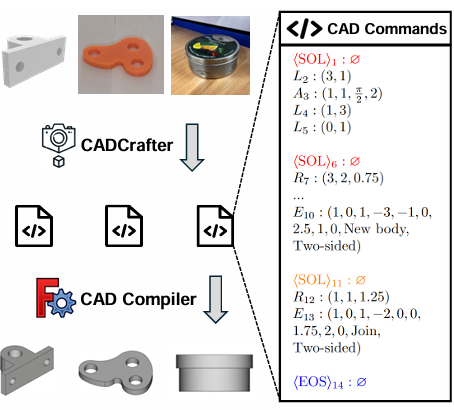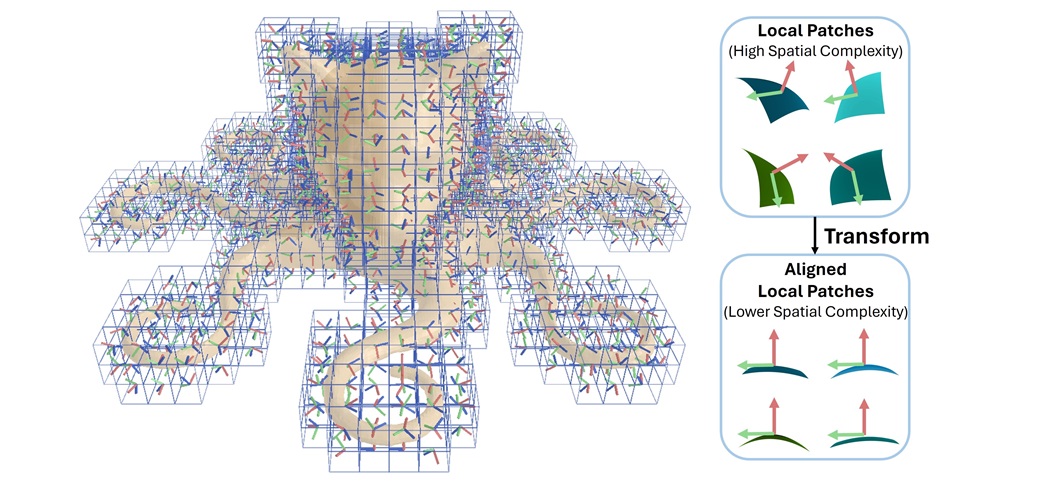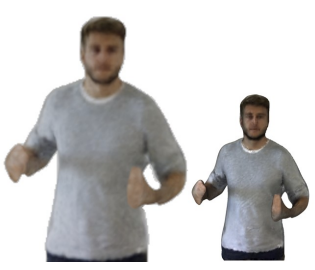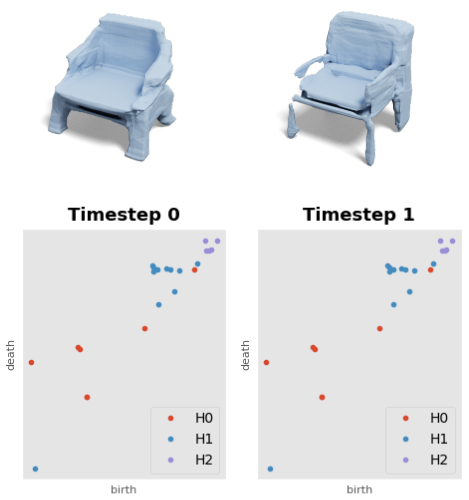Qixing Huang
Enforcing Geometric, Physical, and Topological Priors for 3D Generation
|
Yuezhi Yang, Haitao Yang, George Kiyohiro Nakayama, Xiangru Haung, Leonidas Guibas, and Qixing Huang. GenAnalysis: Joint Shape Analysis by Learning Man-Made Shape Generators with Deformation Regularizations. https://arxiv.org/abs/2503.00807 |
|
Haitao Yang, Yuan Dong, Hanwen Jiang, Dejia Xu, Georgios Pavlakos and Qixing Huang. Atlas Gaussians Diffusion for 3D Generation. International Conference on Learning Representations (ICLR) 2025 (Spotlight Presentation). |
|
Cheng Chen, Jiacheng Wei, Tianrun Chen, Chi Zhang, Xiaofeng Yang, Shangzhan Zhang, Bingchen Yang, Chuan-Sheng Foo, Guosheng Lin, Qixing Huang, and Fayao Liu. CADCrafter: Generating Computer-Aided Design Models from Unconstrained Images. Computer Vision and Pattern Recognition (CVPR) 2025. |
|
Hanwen Jiang, Georgios Pavlakos and Qixing Huang. CoFie: Learning Compact Neural Surface Representations with Coordinate Fields. https://arxiv.org/abs/2406.03417 |
|
Xiaoyan Cong, Haitao Yang, Liyan Chen, Kaifeng Zhang, Li Yi,Chandrajit Bajaj and Qixing Huang. 4DRecons: 4D Neural Implicit Deformable Objects Reconstruction from a single RGB-D Camera with Geometrical and Topological Regularizations. https://arxiv.org/abs/2406.10167 |
|
[ICML24] Liyan Chen, Yan Zheng, Yang Li, Lohit Anirudh Jagarapu, Haoxiang Li, Hao Kang, Haoxiang Li, Gang Hua,and Qixing Huang.Enhancing Implicit Shape Generators Using Topological Regularizations. International Conference on Machine Learning (ICML) 2024, |
|
[CVPR24] Yuan Dong, Qi Zuo, Weihao Yuan, Zhengyi Zhao, Zilong Dong, Liefeng Bo, and Qixing Huang.GPLD3D: Latent Diffusion of 3D Shape Generative Models by Enforcing Geometric and Physical Priors. Computer Vision and Pattern Recognition (CVPR) 2024, Oral Presentation |
|
[SIGA23] Haitao Yang, Bo Sun, Liyan Chen, Amy Pavel and Qixing Huang. GeoLatent: A Geometric Approach to Latent Space Design for Deformable Shape Generators. Special Issue of ACM Transactions on Graphics (TOG). Proceedings of ACM SIGGRAPH Asia 2023. |
|
Haitao Yang, Xiangru Huang, Bo Sun, Chandrajit Bajaj and Qixing Huang. GenCorres: Consistent Shape Matching via Coupled Implicit-Explicit Shape Generative Models. arXiv preprint arXiv:2304.10523 |
|
[ICCV21] Bo Sun, Xiangru Huang, , Zaiwei Zhang, Junfeng Jiang, Qixing Huang, and Chandrajit Bajaj. ARAPReg: An As-Rigid-As Possible Regularization Loss for Learning Deformable Shape Generators. International COnference on Computer Vision (ICCV) 2021. |

